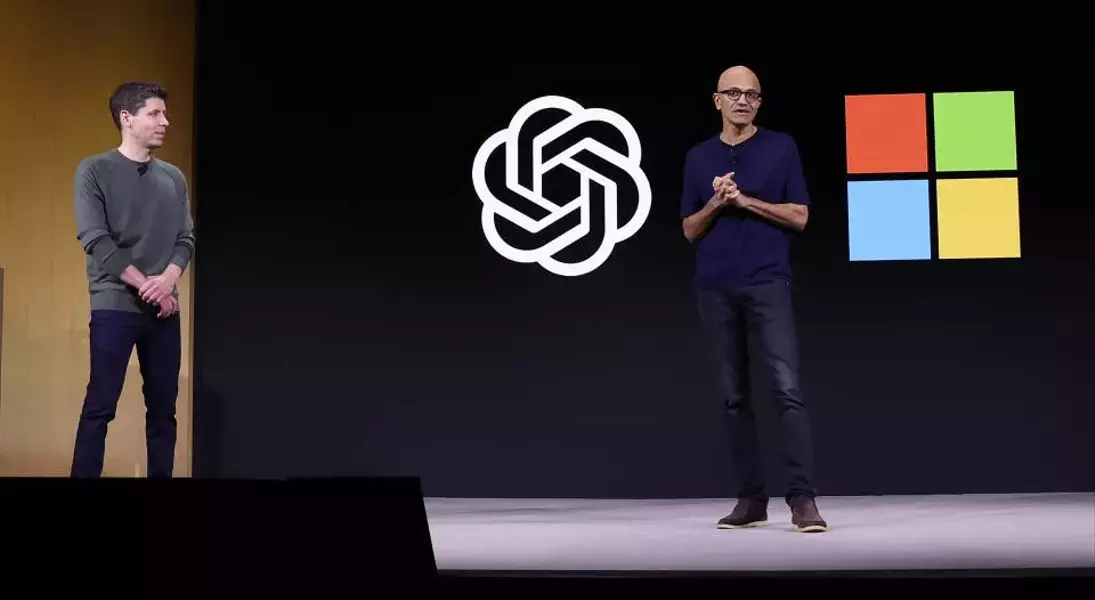



Unlocking the Potential of AI: A Valuation Conundrum
Divergent Perspectives on OpenAI's Worth
The issue at hand is that there are numerous ways to value a company, and the approach taken can significantly impact the final figure. According to legal experts, the valuation of OpenAI could vary by a factor of 3 to 5, depending on the model used and the perspective of the evaluator. This inherent uncertainty makes the negotiation process between OpenAI and Microsoft particularly complex.Columbia University Business School professor Angela Lee explains that the valuation of a hyper-growth company like OpenAI is often based on its potential future value rather than its current performance. "When talking about hyper growth companies like Open AI, we are basing it off what it could be valued in 5 to 10 years," she says. "So you don't have performance. You're basing it off potential, and that's why this is so difficult."
On one hand, OpenAI's position in the in-demand artificial intelligence industry and its rapid growth trajectory could justify a higher valuation. However, its business model has yet to demonstrate a clear path to profitability, with the company reportedly losing around $1 billion per year. Additionally, the current market conditions, which have been slow for deal-making, could drive down the price, according to Lee.
Navigating the Complexities of Transitioning from Nonprofit to For-Profit
The transition from a nonprofit to a for-profit structure adds another layer of complexity to the valuation process. Case Western Reserve University corporate law professor Anat Alon-Beck emphasizes the importance of treating any valuation in this context as a range rather than a definitive figure, given the inherent uncertainties.Alon-Beck also highlights the issue of "information asymmetry" and legal compliance requirements, which can make traditional valuation techniques less reliable. "The organization's proprietary models, algorithms, and decision-making processes are not fully transparent to potential investors," she explains, "and that could cause investors to overestimate or underestimate the value."
Furthermore, the inherent tension between OpenAI's nonprofit and for-profit components, which contributed to a dramatic boardroom clash in 2023, adds to the challenges of the negotiation process. The need to ensure fair compensation to the nonprofit entity could also expose OpenAI to legal challenges, according to Rose Chan Loui, founding executive director of the University of California Los Angeles's Lowell Milken Center for Philanthropy and Nonprofits.
Microsoft's Financial Exposure and the Importance of Transparency
As Microsoft, one of OpenAI's largest investors, navigates these negotiations, legal experts warn that the tech giant's financial exposure is not limited to its initial investment. Alon-Beck emphasizes that Microsoft should be prepared for significant ongoing outlays to transition away from the nonprofit model, including costs for valuation work, legal compliance, and operational integration.The issue of transparency also looms large in these discussions. Chan Loui raises the question of who will speak for the nonprofit's interests, as the other parties involved may have an incentive to undervalue the entity. She suggests that fair market value should include a premium to the nonprofit for giving up future participation and majority control.
Overall, the negotiations between OpenAI and Microsoft are a high-stakes endeavor, with the potential to reshape the future of artificial intelligence and the balance of power in the tech industry. As the two companies navigate this complex landscape, the need for transparency, fairness, and a nuanced understanding of the valuation process will be crucial in determining the ultimate outcome.
